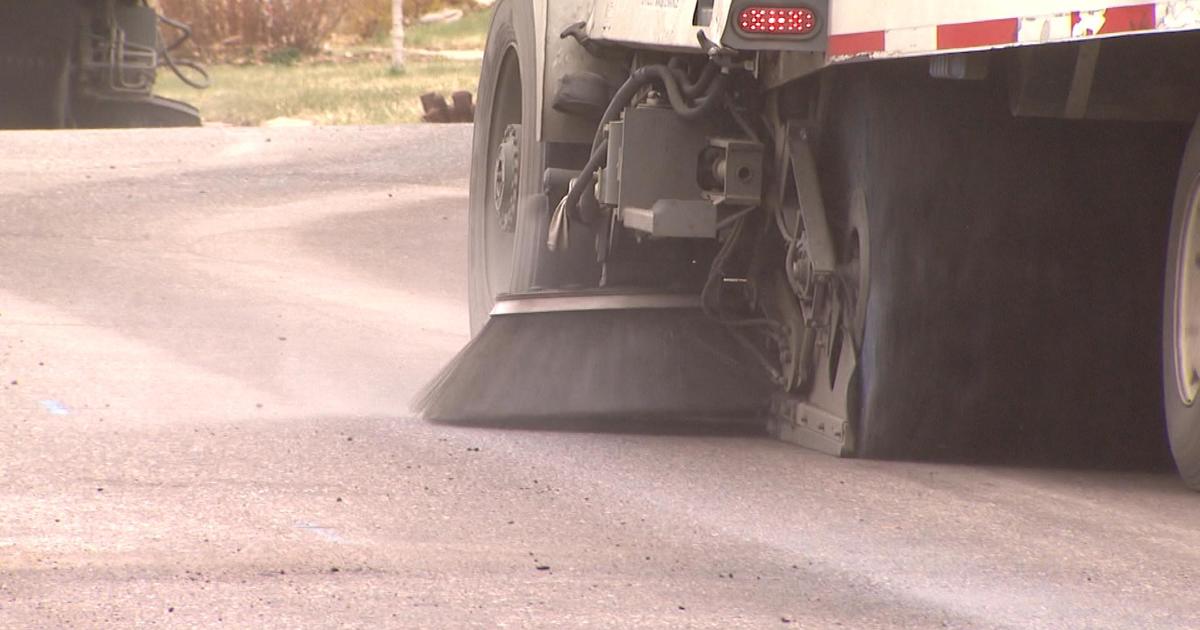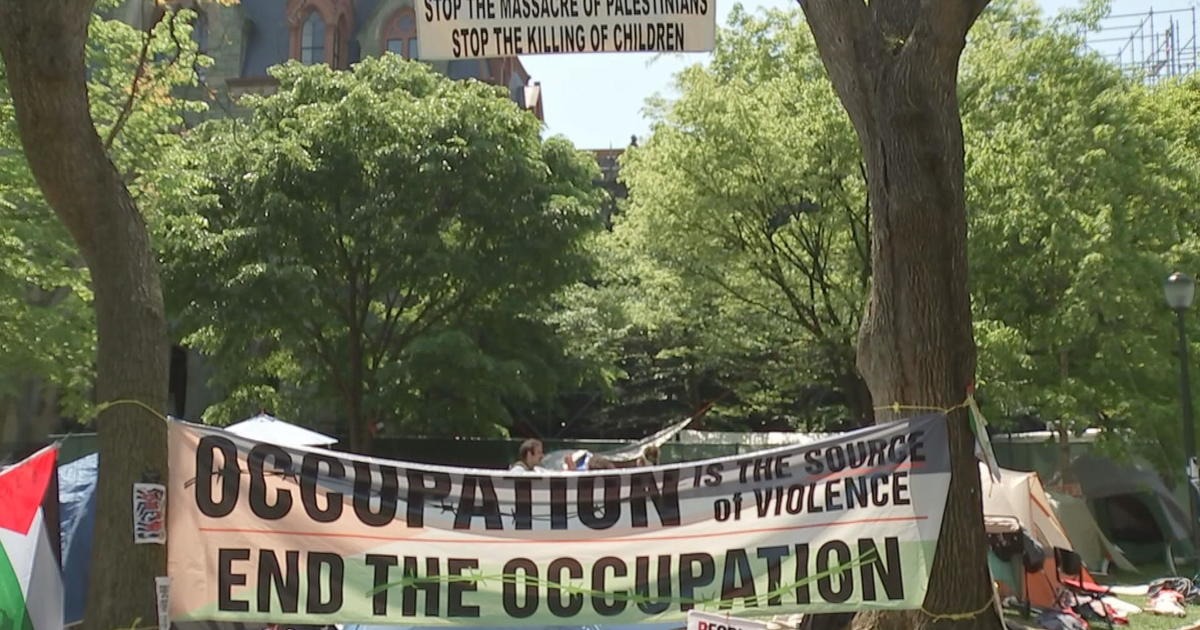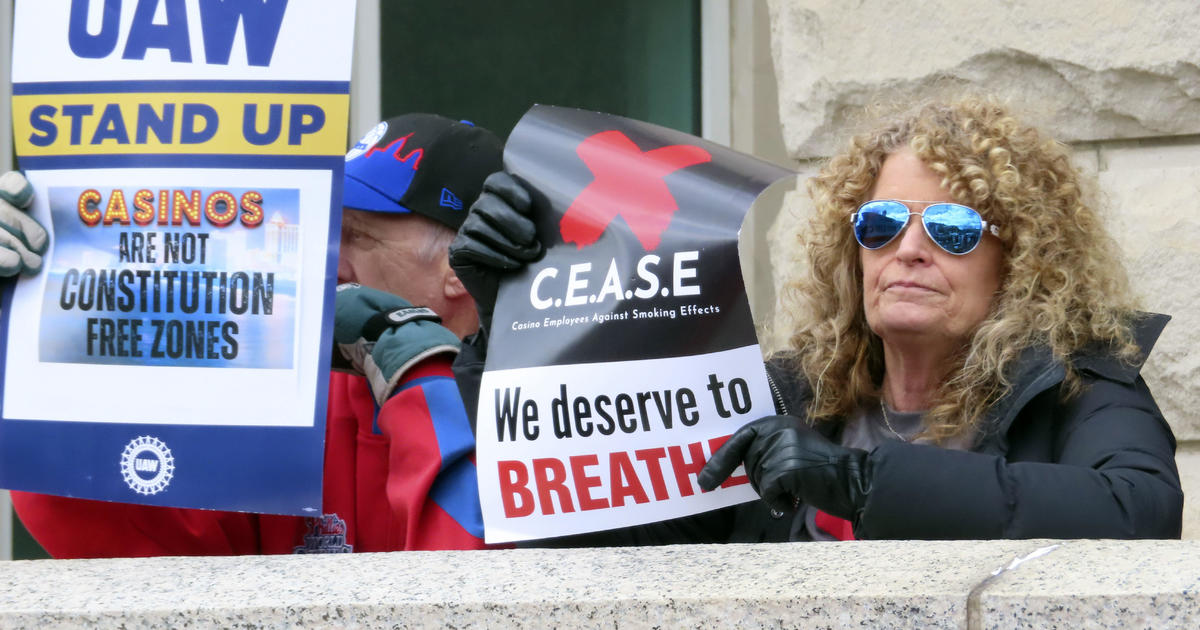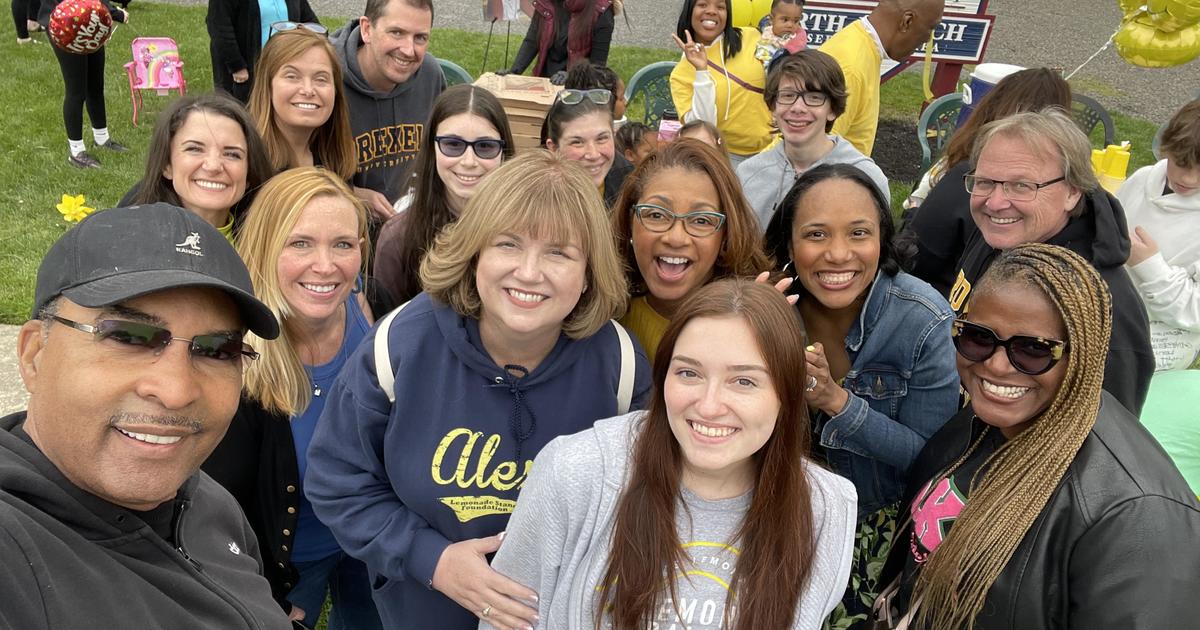Gen Z progressives hope to use Supreme Court's student loan, affirmative action decisions to mobilize young voters
Gen Z progressives like Claire Simon are pushing for record turnout for young voters in the 2024 election. They hope to replicate the response at the ballot box to last year's Supreme Court decision striking down Roe v. Wade, a blow that ended the federal right to an abortion.
This time around, they'll be testing the impact of the high court's decisions denying President Biden's student loan program and overturning race-based college admissions, to see whether conservative candidates and ballot initiatives in races across the country can be defeated in November 2024.
A few years ago, Simon, of Washington, D.C. ,says she'd have been "excited to vote for the first time," but this time, voting is "something I feel like I need to do." She's 17 now and will be casting her first ballot next year.
"This is lighting a fire in our generation," said Anish Mohanty of the recent rulings. Mohanty is a young voter and the digital communications manager of Gen-Z for Change, a collective of social media activists who do both nonpartisan and progressive work to benefit Gen Z.
Last year, Mohanty's organization used its heavy social media presence to get out the Gen Z vote leading up to the 2022 midterm elections, after the ruling in the Mississippi abortion case. Abortion rights were on the ballot last year in multiple states.
The 2022 midterms saw the second-highest youth voter turnout in the last three decades. An estimated 27% of young voters turned out, according to exit polling data from Tufts University's CIRCLE, which researches youth voter engagement.
In June, the Supreme Court restricted affirmative action in college admissions, eliminating the use of race alone as a factor. The next day, it blocked President Biden's student loan forgiveness plan. Mr. Biden had sought to relieve $400 billion in student loan debt for 40 million Americans.
Gen-Z for Change and six other youth vote organizations condemned the decisions.
"Young people's futures and the collective future of this nation cannot withstand the impacts of a Supreme Court gone rogue, presiding and ruling without the confines of legal norms," the groups said in a statement.
Mohanty said these rulings make it more difficult for young people to integrate into the workforce because minority and low-income students could face steeper challenges in pursuing an education, which would limit their job prospects. (In the wake of the Supreme Court's decision on Mr. Biden's student loan forgiveness program, the Biden administration is rolling out a new, narrower plan to provide student loan relief.)
Mohanty's organization hopes to help elect leaders who can better meet the needs of the younger generation.
"So many of these decisions made – not only by the court, but by conservative leaders – are attacking young people," Mohanty said. "It's an interesting move, considering we are about to become a growing force in the coming elections."
By 2024, Gen Z will make up 49% of the voting population.
Whether these voters will be able to replicate the galvanization of voters in 2022 in response to the court's abortion decision remains to be seen. Recent CBS News polling showed that 53% of adults under 30 disapproved of the overturning of Roe. Overall, most Americans — 57% — thought striking down Roe was bad for the country.
The picture is more mixed on affirmative action. CBS News polling shows the majority of adults in the U.S. believe race should not be a factor in college admissions. But 70% of young adults under 30 say affirmative action programs should continue.
After the abortion decision, young voters made their disapproval evident on Tik Tok, Twitter and on the streets – urging their peers to vote for leaders who oppose restricting abortion rights, and to turn out for voter referendums on abortion that were on the ballot in Michigan, California, Vermont, Kentucky, and Montana. The outcome was overwhelmingly in favor of abortion rights. Not a single one of the states with abortion on the ballot in 2022 voted to restrict abortion rights.
Another youth organization condemning the Supreme Court's decisions is Voters of Tomorrow, a nonpartisan group encouraging youth civic engagement. Jack Lobel, the group's national press secretary, discussed the get-out-the-vote effort after the abortion ruling.
"We found that in key swing states, young voters were motivated by attacks on abortion care more than any other issue," Lobel said. "That was something we used to shape our strategy when it came to turning out voters for the consequential 2022 midterms."
He hopes they can do the same in 2024, after the decisions on affirmative action and student loans. However, polling by Voters of Tomorrow from May showed 40% of young voters said jobs and the economy will most influence their vote in 2024, and 23% said education.
Lobel will be among the young voters from across the country convening Thursday in Washington, D.C., for the Leaders of Tomorrow summit.
But on the other side, young Republicans are also interested in turning out younger voters. Connor Gibson, of Mississippi, who's 18, was "relieved" after the decisions on affirmative action and student loan debt. He feels that affirmative action practices negatively impacted many of his friends.
"It gave me a sense of relief for them, and young people everywhere that with this new Supreme Court ruling, they will be judged on their merits, not based on anything they cannot control," he said.
Gibson plans to vote for lawmakers who support the court's rulings.
"Knowing that the president will be making very important appointments – potentially to the Supreme Court – in the coming years and knowing how important these decisions are, I know it will encourage a lot of other young people to step up and cast a ballot in November," he said.



